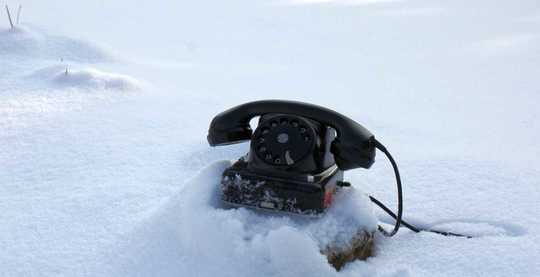This is a very simple question.
It was recently asked in a LinkedIn Franchise Group.
And I bet we all want to know the answer.
It would make it easy to build next years franchise marketing budget for franchise buyers if we just had a short-list.
Even better if it had a performance ranking.
There were almost 50 answers and comments to this important question.
Here's a selection of what franchising people said -
"I speak with franchise development departments every day and have found that they can fork out as much as 60% of the initial franchise fee in order to secure qualified franchisees (using franchise consultants, recruiters, etc.). Are there any databases of open territories for potential franchisees to search? Vice-versa are there any databases of franchisees in the market to open a new location?" Mike Mackin
"It has been my experience that you can "catch the bigger fish" through today's portals. The secret is working with your portal vendor and let them help you on the franchise investment levels that you post on the site. The best experience I have had has been with Franchising.com. There numbers are a little lower, but the quality is very good. And don't forget that most consumers are not going to tell you what they really have in the bank until you get further down the sales process." Phil Mettra
"Portals are just another outlet for reaching your target, I don't think you can narrow down a specific vendor that does better than another. If the opportunity on the portal is attractive enough, the portal also ranks highly on Google for top keywords and it has healthy traffic stats (which the portal vendor can provide to you) then you have a winning vendor. You should always do your due diligence and ask those vendors to provide you monthly traffic to the page you will be listed and can even go as far as asking for the top 3 IP locations to ensure they are based in your market. Remember that candidates can come from anywhere but your digital presence, especially social and reputation, is what will give you the edge in higher investment brackets." Brendon Major
"My experience with the portals is that they sometimes work beautifully and other times they just dont. The exact same advert on one site delivers 10 leads and on another none. To be honest although I have met many "experts" I have never found one that has been able to unravel the mysteries of the portals." Sean Goldsmith
"Just wondering if there are other portals more likely to reach and succeed with the higher investment prospects? I believe in a strategy of creating presence and buzz for your brand, with a wide digital presence probably now being the top tactical priority" Kevin Kruse
"I may have a bit of a different take. If a company is looking for "high dollar" candidates, I suggest the you will find them better using highly target public/media relations campaigns, instead of portals. As noted above, using portals to find YOUR candidate is a bit like fishing in the Atlantic Ocean with a single line, a bobber, a safety pin, and a piece of corn as bait. They simply are not designed to find a specific type of candidate. They have tens of thousands of names/inquiries, but they simply cannot be targeted to YOUR candidate. It is MUCH better to design a PR/MR program that targets YOUR candidate BEFORE the person even starts looking for a franchise. By the time a potential candidate hits a portal, you are already competing with hundreds of other franchise companies. Right? Portals have a role, but not for finding a specific type of candidate." Dr. Michael (Mick) Riddiough
"Before you start your campaigns, it is good if the portal can offer statistics for the locations where you are listing in, because different categories work in different locations. The categories can change every 3 months, so it is important to keep on top of the statistics and results. Another point which might help, is that franchisees don't always come from franchise portals, our web portal is a business and franchise for sale portal, mainly because some people are looking for any business opportunity and inquire about the franchise opportunities on the website. It is a larger net to catch enquirers. I hope this is helpful in understanding web portals and how to run a more successful franchise recruitment campaign." Paul O'Brien
"That is great advice, and I like your approach to testing adverts and then placing the most highly effective ones. The big stumbling block is how forthcoming the portals are with their stats. I know in the UK you would have an easier time asking the Pope for his hand in marriage. Are the US portals more forthcoming?" Sean Goldsmith
"I have sold several franchises for clients with an investment level of $400k-$800k by using portals.Granted, there will ALWAYS be the prospect that overstates the amount of capital they have available and you have to just move on and keep on dialing. There hasn't been one portal that seemed to bring in more qualified leads on a more consistent basis than another. I do seem to spend a lot of time chasing credits for pay per lead sites that claim they "verified" leads before sending them, but by and large every portal site seems to do a fairly decent job for me." Tom Parks
"The biggest issue which all Franchisors are facing about this approach is the cost. Some websites in Australia are offering packages which help Franchisors to do this at a more cost effective price. Keep an eye out for this. Otherwise the only other advice I can offer on this is to keep track of leads and quality of leads which are being generated by the website. One of our clients mentioned to me once, from 1 website they had received heaps of leads, but didn't generate any solid leads, while from another they received only a hand full of leads in the month, but 2 of the lead had converted to solid leads" Paul O'Brien
"How helpful are portals in generating qualified leads? My experience tells me that really depends upon your brands investment range. Generally speaking the top 5 portals basically cost the same amount to advertise on them. However because of my sector "automotive" vs "food" the portal is unable to generate me enough leads to make the potal investment worthwhile. I understand the ratio on portal leads to be 200:1 or even 250:1. It would take years for a portal to drive me that much traffic. At which point I would have spent far more than the inital franchise fee in marketing dollars." Lee Oppenheim
"Portals definitely "had their day", i.e. in the late 1980's through the early 1990's. They were THE way to market one's franchise. Today, however, they have become quite common place in our industry, and while there definitely are differences among the wide range of portals, overall, the range of inquiries to sales, as Lee mentions, is in the 200 - 250 to 1. In some ways, portals have become today's franchise "classified ad" section of the Internet. And, it gets very expensive to hire high quality sales people to field these return phone calls. As Franchise Update points out in its 2013 annual marketing survey, the total advertising placement cost associated with one sale these days(for their surveyed companies) was around $13,000...not including personnel costs. Is it the same today?" Dr. Michael (Mick) Riddiough
"Something to be careful with which you might not know about. Make sure that the website which you are using doesn't use a technique called lead thinning. This is when the website generates 1 lead and farms it off to multiple franchisors on their website. Usually the person making the enquiry doesn't know that this is happening either. The way to identify this is when you start calling a lead, the person will say something like "I didn't inquire about your franchise or business". This makes the website look good because of the number of leads generated, but the quality of leads is decreases dramatically." Paul O'Brien
"Terrific dialogue everyone....... portals? To use or not to use...... I heard a lot of "casting a wide net" as well as "be specific in your targeting, e.g. Veterans" , which leads me to a conclusion I've reached before: we are in a challenging, competitive environment for sourcing qualified leads which turn into franchisees. At least we have a forum for discussing our strategies and tactics. Thanks for the insights....." Kevin Kruse
"The specific answer to Kevin's specific question is "No"...at least not by design and not very productively...and it is likely to be quite expensive for the franchisor. I once had a franchisor client in which the "all in" cost was $1.4MM. We did quite well with it. Did we use portals? Yes, as one avenue, and it was truly "dialing for dollars". We did much better with highly focused PR/media relations in terms of finding "high value" candidates." Dr. Michael (Mick) Riddiough
"I disagree. Portals work. You already used portals for your client, even in light of the reality that it's 'dialing for dollars.' Hey, it still takes 35 tons of ore to smelt one ounce of gold--all you have to do is make 200 enthusiastic dials. Big deal. Get with the idea that selling takes concerted effort, and plenty of money. If the average cost of sale (not including commissions) is around $12,000 or so, the obvious path is easy: pick 3-4 top portals;" Paul Stewart
"Your approach works for you, and that's great. I take a different route, and that works for me and my clients. I don't think one is right and one is wrong, just different...in many ways. I prefer more targeted and efficient ways of finding the right candidates. "Dialing for dollars" is simply not my preferred way" Dr. Michael (Mick) Riddiough
"Yes, absolutely, portals work for generating some quality leads that result in Franchise sales for the Franchisor at the investment levels stated" Ronald Silberstein CPA and CFE
"Portals are only as effective as the sales team that are working them, and the matrix you use to measure. Keep in mind the higher the investemnt the fewer the leads you can expect so it is important that your team devote the necessary effort into follow up with each and every lead that comes through." John Byron
"I would say the portals are only as good as the marketing team who works them and and the adverts. If the proper research hasn't been performed before the advert goes up, there is no guarantee of success" Paul O'Brien
"Simple answer to a simple question.. The answer is yes, you have to be in portals. You can add filters to any portal to try to catch the investor you are looking for. Portals are one leg of a triad that you need to build to reach your target customer." Dale Waite
I am glad we solved the riddle of getting high net worth franchise web portal inquiries.
Franchise inquiries from web portals are minimal expressions of interest.
They are not leads.
You can't designate an Expression of Interest a Franchise Lead until you've qualified them.
The most reliable way to qualify them is to talk with them.
Franchise-Info has some ideas for you to work on this problem.
If you call me we can discuss two things -
- What to do with all your inactive inquiries who have expressed an interest
- How to attract Franchise Buyers online
I am easy to reach at 443.502.2636 and [email protected]. I answer my own telephone. And I call people back.
For the 5 Most Fascinating Stories in Franchising, a weekly report, click here & sign up.







